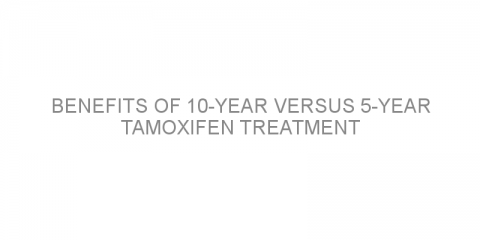In a nutshell This phase III trial aims to determine the benefits of using the drugs eflornithine and sulindac (Clinoril) in the prevention of high risk adenomas and secondary colorectal cancers. Researchers will look at the number of recurrences over a 3 year period while administering the drugs. The details Patients previously treated for...
Read MoreCurrent treatment status-Undergoing active treatment-Complete response Posts on Medivizor
Nutrition and Physical Activity Guidelines for Cancer Survivors
This article outlines current guidelines regarding nutrition and physical activity for cancer survivors. A cancer survivor is anyone diagnosed with cancer (cured or currently undergoing treatment). Environmental and dietary factors play a major role in cancer development. Adequate nutrition and regular physical activity improve quality of life and may...
Read MoreNutrition and physical activity guidelines for cancer survivors
In a nutshell This article outlines current guidelines regarding nutrition and physical activity for cancer survivors. Some background A cancer survivor is anyone diagnosed with cancer (cured or currently undergoing treatment). Environmental and dietary factors play a major role in cancer development. Adequate nutrition and regular...
Read MoreNutrition and physical activity guidelines for cancer survivors
In a nutshell This article outlines current guidelines regarding nutrition and physical activity for cancer survivors. Some background A cancer survivor is anyone diagnosed with cancer (cured or currently undergoing treatment). Environmental and dietary factors play a major role in cancer development. Adequate nutrition and regular physical...
Read MoreCan patients with rectal cancer be treated with pre-operative chemoradiation alone?
In a nutshell The present study evaluated the outcomes of patients with rectal cancer who were treated with non-operative management (NOM) after complete clinical response (cRC) to neoadjuvant chemoradiation (nCRT). Some background Rectal cancer involves the final part of the large intestine, or rectum. The first choice of treatment for...
Read MoreTreating Chemobrain: Rehabilitation Therapies Emerge
‘Chemobrain’ is the colloquial term for changes in cognitive functioning following chemotherapy for cancer treatment. As a result of a growing need, more cancer centers started testing interventions for cancer-related cognitive dysfunction, notably cognitive behavioral therapy (CBT). The paper presents an overview on current studies...
Read MoreBreast reconstruction for breast cancer patients
The present review discusses the principles, methods and complications of breast reconstruction surgery for breast cancer patients who need mastectomy (surgical removal of the entire breast). Women with breast cancer often need extensive surgeries to eliminate the cancer, along with healthy breast tissue, skin or the nipple and areola (the darker area...
Read MoreTowards guidelines to prevent colorectal cancer recurrence
This article presents results of recent studies concerning the interplay between the body's chemistry and behavioral factors that influence colorectal cancer (CRC) recurrence. Recent advances in CRC treatment have produced new and promising biological treatments. However, tumors sometimes have unique features that render many of these therapies...
Read MoreThe association between insulin blood levels and risk of death in breast cancer patients
In a nutshell The present study evaluated the relationship between high insulin levels in the blood stream and the risk of cancer-related mortality. Its authors report that women with higher-than-normal insulin levels are at higher risk of death due to breast cancer. Some background Breast cancer has been shown to be more common in people who...
Read MoreBenefits of postoperative chemotherapy vary according to breast cancer type
In a nutshell This study questioned the benefit of adding chemotherapy to postoperative hormonal treatment in the case of lobular breast cancer. Their findings were that chemotherapy seems to offer no additional beneficial effects in women with lobular breast cancer receiving hormonal therapy. Some background There are two main types of breast...
Read MoreBenefits of 10-year versus 5-year Tamoxifen treatment
In a nutshell Tamoxifen treatment is given to many breast cancer patients after surgery to prevent recurrences and improve survival. It is usually given for a maximum of 5 years. This study determined that longer treatments offer further survival benefit. Some background Tamoxifen is a drug used against breast cancers which produce...
Read MoreDoes chemotherapy have a persistent effect on cognitive function in breast cancer patients?
In a nutshell The present study looked at the persistence of cognitive dysfunction in patients with breast cancer, after they had completed chemotherapy for at least 6 months. Except for slight impairments in verbal abilities (e.g. word-finding difficulty) and visuo-spatial abilities (e.g. getting lost more easily), no...
Read More









